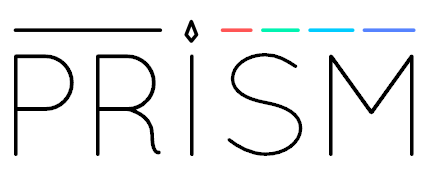Prism, for Play
This week marks the release of a new version of Prism, a web-based tool for “crowdsourcing interpretation,” constructed over the course of two academic years by two separate cohorts of graduate fellows in our Praxis Program at the Scholars’ Lab.
Praxis fellows are humanities and social science grad students across a variety of departments at UVa, who come to our library-based lab for an intensive, team-based, hands-on experience in digital humanities project-work, covering as many aspects of DH practice as our practiced Scholars’ Lab staff can convey. (By the end of the year, our fellows have negotiated a project charter; learned to create and appreciate robust ontologies and database designs; programmed or at least hacked around in Ruby and Javascript/CoffeeScript; raised up a Rails scaffold and become competent in HTML/CSS; managed the versioning of open source code in GitHub and deployed staging and production instances of a project; made design decisions and analyzed and drawn conclusions about user-experience aspects of a real-world project; communicated the value of their work and grown more comfortable sharing it in iterations and open-access venues; honed their skills at speaking across disciplinary and professional lines; learned hard project-management lessons; expanded their contacts in the DH world; engaged in conversations about funding, academic personnel, professionalization, and broadened career paths for scholars; and had fun and survived it all.)
Where our 2011-12 cohort of Praxis fellows laid the groundwork (resurrecting an old SpecLab game that evolved into the finest bit of vaporware never to be produced by the humanities computing community at UVa, and creating a multilingual, prototype system that allowed multiple readers to mark up a pre-set list of texts according to a shared vocabularly), our 2012-13 team had the opportunity to refine the concept into a usable, open-ended tool. Thanks to their work, it’s easy to create a Prism account (including by logging in via existing services) and launch your own markup games, by uploading texts and defining the facets available to readers for the kind of blunt-force, collaborative annotation Prism allows. Users now have a catalogue of texts they’ve added to the system or participated in marking up, and can get a sense of the evolving, shared reading of those texts through two visualization modes – one new (showing a quantified breakdown of crowdsourced readings), and one (showing the affective frequency of reader agreement) refined. Best of all, Prism has become lovely and light. A design refresh and attention to ease-of-entry should make it an attractive tool for classroom use, and for experimentation and play.
Please try it out and let our students know what you think. (They are Claire Maiers, Sociology; Brandon Walsh, English; Gwen Nally, Philosophy; Cecilia Marquez, History; Chris Peck, Music; and Shane Lin, History – emerging scholars and scholar-practitioners to watch!) We would be especially interested in pedagogical applications of Prism. And, since next year’s Praxis cohort – soon to be announced – will be moving on to a new project (reviving and re-thinking another SpecLab classic, the Ivanhoe Game), we also encourage developers to send pull requests for bug fixes and new features. Much remains possible with the “crowdsourcing interpretation” concept at the heart of Prism, which one early reviewer called “potentially the beginning of a new research field.” Further visualizations? Image-based or non-textual approaches to collaborative markup? Computational linguistic analysis based on comparison of crowdsourced readings to larger corpora? The sky is the limit.
For now, we’re just enjoying the way the new, bright, child-like design for Prism matches the current mood in the Scholars’ Lab grad lounge: “Look! We made this!”

